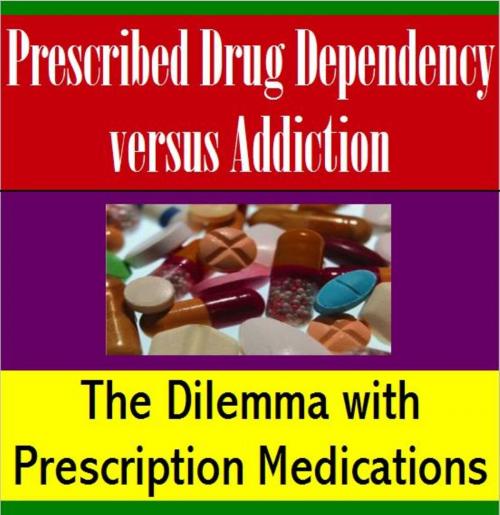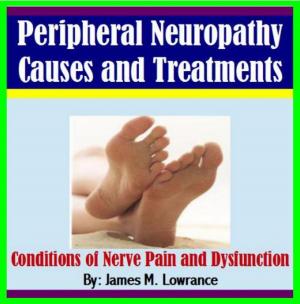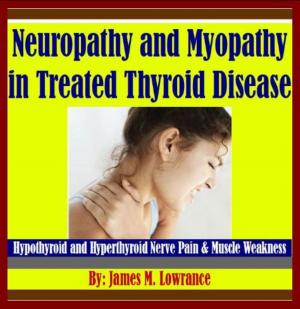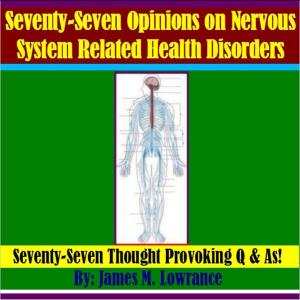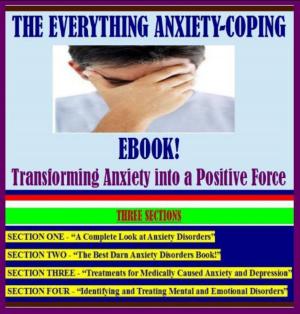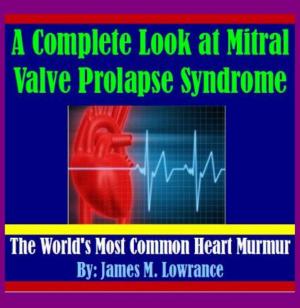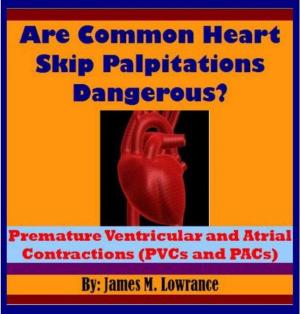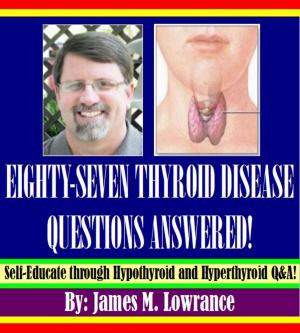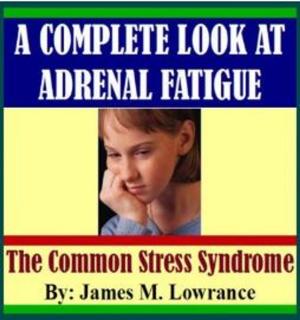Prescribed Drug Dependency versus Addiction
The Dilemma with Prescription Medications
Nonfiction, Health & Well Being, Health, Healing, Ailments & Diseases| Author: | James Lowrance | ISBN: | 1230000016835 |
| Publisher: | James M. Lowrance | Publication: | September 10, 2012 |
| Imprint: | Language: | English |
| Author: | James Lowrance |
| ISBN: | 1230000016835 |
| Publisher: | James M. Lowrance |
| Publication: | September 10, 2012 |
| Imprint: | |
| Language: | English |
The prescribing of pharmaceutical medications by licensed physicians, is essential to the health of 100s of millions of medical patients within the nation of the US and worldwide but like most things that have a completely legitimate basis and an extremely important purpose, prescription issuing can become an imbalanced practice for some medical doctors.
In some cases, doctors are being too liberal with the prescribing of drugs, while others are becoming inappropriately reluctant to prescribe drugs that are legitimately needed by their patients. In the case of prescribing abuse, that leads to patient addiction of drugs that are habit forming; in many cases doctors who are guilty of this practice are simply in a state of burn-out and have become unwilling to regulate their patients to the degree of necessity, to prevent prescription drug abuse from occurring.
Doctors who go the opposite direction and become unwilling to prescribe certain types of FDA approved medications or who prescribe far-less than the amounts needed by patients, may have become fearful of repercussions from patients or their families, should dependency or addiction occur in them. This can obviously become a dilemma for sincere doctors who reach a point of literally not knowing when it is appropriate to prescribe certain medications or to continue them. Certainly this is not an easy balance for them to strike and is something that certainly makes their jobs far more difficult.
While I am not a pharmaceutical professional, nor am I a medical professional of any type, I am a treated medical patient, as are many members of my immediate and extended family. I have witnessed enough problems just within my own circle of family and friends, to recognize the problems that are occurring with some doctors, regarding prescription medications. It is from this position that I wish to offer my sincere opinions regarding the problems involved with prescribed drugs. It is my hope that my opinions will inspire other medical patients and their families to become more proactive when dealing with their doctors in this area of medical treatment.
With medical errors being the third leading cause of death in the US and with many of these having to do with the misprescribing, the neglect-to-prescribe and the abusive prescribing of controlled medications, it is important for both the medical community and the general public, to become diligent in seeing more caution practiced to prevent these potentially tragic outcomes. It is my sincere hope that this book will contribute at least in some small way to this effort.
TABLE OF HEADINGS (Approximately 5,079 words in length):
1. Introduction
2. The Vast Difference between Dependency and Abusive Addiction
3. What is Prescription Medication Dependency?
4. What is Prescribed Medication Addiction?
5. The Imbalanced Prescribing Methods of Some Doctors
6. Doctors who are Overly-Compliant with Drugs
7. How can Patients Protect Themselves?
8. Drugs that can Potentially become Addictive
9. Statistics Regarding Prescription Medication Dangers
The prescribing of pharmaceutical medications by licensed physicians, is essential to the health of 100s of millions of medical patients within the nation of the US and worldwide but like most things that have a completely legitimate basis and an extremely important purpose, prescription issuing can become an imbalanced practice for some medical doctors.
In some cases, doctors are being too liberal with the prescribing of drugs, while others are becoming inappropriately reluctant to prescribe drugs that are legitimately needed by their patients. In the case of prescribing abuse, that leads to patient addiction of drugs that are habit forming; in many cases doctors who are guilty of this practice are simply in a state of burn-out and have become unwilling to regulate their patients to the degree of necessity, to prevent prescription drug abuse from occurring.
Doctors who go the opposite direction and become unwilling to prescribe certain types of FDA approved medications or who prescribe far-less than the amounts needed by patients, may have become fearful of repercussions from patients or their families, should dependency or addiction occur in them. This can obviously become a dilemma for sincere doctors who reach a point of literally not knowing when it is appropriate to prescribe certain medications or to continue them. Certainly this is not an easy balance for them to strike and is something that certainly makes their jobs far more difficult.
While I am not a pharmaceutical professional, nor am I a medical professional of any type, I am a treated medical patient, as are many members of my immediate and extended family. I have witnessed enough problems just within my own circle of family and friends, to recognize the problems that are occurring with some doctors, regarding prescription medications. It is from this position that I wish to offer my sincere opinions regarding the problems involved with prescribed drugs. It is my hope that my opinions will inspire other medical patients and their families to become more proactive when dealing with their doctors in this area of medical treatment.
With medical errors being the third leading cause of death in the US and with many of these having to do with the misprescribing, the neglect-to-prescribe and the abusive prescribing of controlled medications, it is important for both the medical community and the general public, to become diligent in seeing more caution practiced to prevent these potentially tragic outcomes. It is my sincere hope that this book will contribute at least in some small way to this effort.
TABLE OF HEADINGS (Approximately 5,079 words in length):
1. Introduction
2. The Vast Difference between Dependency and Abusive Addiction
3. What is Prescription Medication Dependency?
4. What is Prescribed Medication Addiction?
5. The Imbalanced Prescribing Methods of Some Doctors
6. Doctors who are Overly-Compliant with Drugs
7. How can Patients Protect Themselves?
8. Drugs that can Potentially become Addictive
9. Statistics Regarding Prescription Medication Dangers
